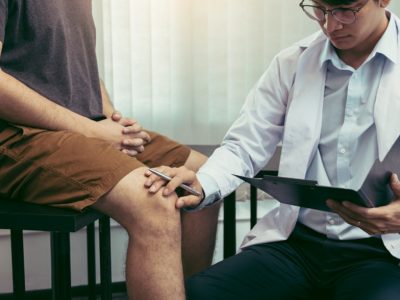For humans, beyond certain characteristic pathologies, it is the quantity and quality of sperm which are at stake here. The quantity of sperm is considered to be low when there are less than 15 million sperm per milliliter of sperm. We are then faced with an oligospermia which can make conception more difficult. The same applies when the quality of the sperm is affected, in particular in the case of asthenospermia (anomaly linked to the mobility of the spermatozoa) or in the case of teratospermia (morphological alterations of the spermatozoa). In certain configurations, it is possible to overcome these disorders by adopting simple strategies such as:
- Improve your diet
- Practice a regular sporting activity
- Change your BMI (body mass index)
Avoid exposure to high temperatures (for the sperm to develop in good conditions, the testicles should not be exposed to heat above 35 ° C). You can check this website and find the solutions with alternative treatment.
Other recommendations may prove more costly in terms of effort, but absolutely essential. First of all:
- Stop taking certain medications or certain drugs.
- Ban certain toxic substances from its environment.
- Stop smoking.
- Drastically reduce your alcohol consumption (alcohol decreases the level of testosterone which in turn reduces the number of sperm).
The good news with these pre-conception health tips for men is that general improvement can be seen fairly quickly. In fact, spermatogenesis (the process of sperm production) lasts about 90 days. It will therefore only take three months to begin to assess the beneficial effects of these good resolutions.
It is essential that all women wanting to have a baby monitor their cycles to determine the best time to conceive. The moment when the woman is fertile only lasts a very short time each month, which is why it is important to know when exactly.
How does the menstrual cycle work?
On average, a menstrual cycle lasts 28 days. This information is the starting point.Not all women have a 28-day cycle. It is therefore important to note the precise duration of a cycle. In case of very irregular cycles you must imperatively inquire with your general practitioner.
Calculate your fertility period
Predict ovulation
Knowing exactly when a woman ovulates is already an important step that can increase the chances of pregnancy. This can happen on the 14th day of the cycle or a little earlier or later or not happen at all. If, despite ovulation, the woman is not pregnant, it is usually necessary to wait another 14 days for the cycle to start again. Thus, in a woman with 30-day cycles, ovulation will normally take place around the sixteenth day and not the fourteenth day.
Other programming facts
To be pregnant, a woman must have sex at the time when she is most fertile and ejaculation must take place in the vagina. That said, since women may not ovulate exactly on the fourteenth day of their cycle, it is best to have sex on days 10, 12, 14 and 16 of the cycle . It is recommended to have intercourse every other day rather than daily and close to ovulation so that there is enough sperm. Despite this advice, in men with very low sperm concentration, this method can further reduce sperm concentration and the chances of fertilization decrease rather than increase.








Comments